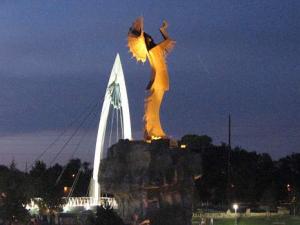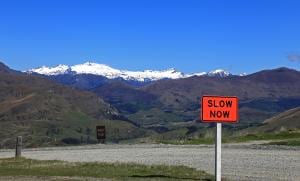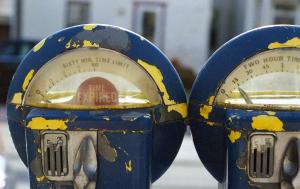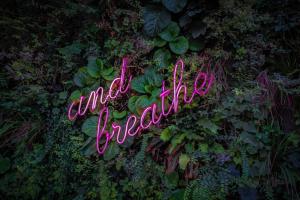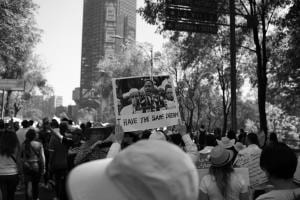 I wasn’t old enough to have seen Martin Luther King, Jr. at work while he was alive. However, by virtue of growing up in southern West Virginia I was able to see very clearly why he was at work.
I wasn’t old enough to have seen Martin Luther King, Jr. at work while he was alive. However, by virtue of growing up in southern West Virginia I was able to see very clearly why he was at work.
Granted, it wasn’t until I had grown up and moved away that I realized the cultural story behind the jokes and the monochrome skin that surrounded me for most of my young life.
My hope since then has been to read, to think, and to listen to black men and women around me. I listen because I don’t – and cannot in some ways – understand.
For example, I do not know what it is like to grow up in a country where attentively inspecting whether or not your hoodie looks intimidating is a life or death pursuit.
Instead, I want to listen and write today because I’m ignorant. That’s why I write anything you may read here. I also write to find ways that I’m part of the problem. Today I’m inclined to listen and write because of a dream.
Dreams, as an idea, fit nicely into the language of spiritual formation.
The best dreams mean that something changes, that our intentions ripen and swell into goodness. A good “dream” is based in a hoped-for reality.
Jesus called his hoped-for reality “the kingdom of God.” The picture that is painted of the kingdom of God is of every “tribe, tongue, and nation” gathered together – diversity AND unity – eating from the same bowl at the table God built.
On this day when we remember the person and legacy of Dr. Martin Luther King, Jr. it makes sense to bring the idea of dreams to mind. A “dream” is why many of us know him. While you may protest and say his preaching and action are the highlights, I wonder if they were but part of a bigger whole?
What if the thing that animated Dr. King from the beginning was the dream shared by Jesus & the Kingdom of God? The dream of people together but unique, the dream of ending prejudice and oppression in its subtly accepted forms. I believe this is what shaped everything that flowed from the wise and patient person that was Dr. King.
The dream of the Kingdom animates and organizes our lives.
Dr. King’s dream hit back against oppressive power with innocence and presence. His life and teaching asked humanity to look at its own face in a mirror, as objectively as possible, and see what we were (and in still are). The announcement of the Kingdom of God through Jesus had the same impact. I am not equating Dr. King with Jesus, mind you, but that Dr. King’s dream was part of something bigger.
The dream of Dr. King was born from his personal journey of spiritual formation. So, what I see at the heart of Dr. King’s dream and the legacy he left are the same questions that we ask in the journey with Jesus.
Who am I – what is my value and acceptance to God and others?
Where do I find darkness and death in my own character?
What kingdom am I living in and what does a healthy kingdom for all look like?
How does God’s justice and freedom come to life here and now?
Dr. King embraced the Kingdom of God poetically articulated by Jesus. It is a Kingdom in which racism and oppression of any kind has no place.
We’re all invited to become like Jesus in the skin we’re in. Regardless of our skin’s pigment we are invited and accepted by Christ which is Dr. King’s dream writ large. However, Jesus also invites us to live in respect to the way that pigment has become a marker of disadvantage, abuse, and exclusion of black men and women throughout American history and still today.
Dr. King’s dream draws us to honestly reflect on injustice of all stripes. His dream, and the dream of the Kingdom of God, then invite us to become the kind of people who do something about it.
When a Dream Asks Questions
So, today is a wonderful day to ponder how the dream of living deeply in the Kingdom of God intersects with the dream of living with each other as Dr. King envisioned. The dream he enacted. The dream that, in a sense, took his life.
Is our self-examination honest enough to ask questions such as “Why do we often immediately doubt and question claims of racial profiling, oppression, and prejudice?”
Does our prayer for “God’s will to be done” encompass men and women who require allies who admit where God’s will isn’t being done, regardless of what it might cost us?
Can our reading of Scripture see the obvious foundation of Christian theology in the Jesus who identified first with the oppressed?
Does our congregation/community see itself through the lens of Jesus, as an outpost of a hoped-for reality where racism and oppression is extinguished on a daily basis?
It appears that the best way this former southern boy can honor Dr. King is simpler than I thought. Indeed, it is to live into the mesh point between the Kingdom of God at hand and the dream of the Washington Mall because they are one and the same dream.
This is how a dream changes us, how the Kingdom of God changes us. A dream that changes everything.
(Photo by Jerónimo Bernot on Unsplash)


